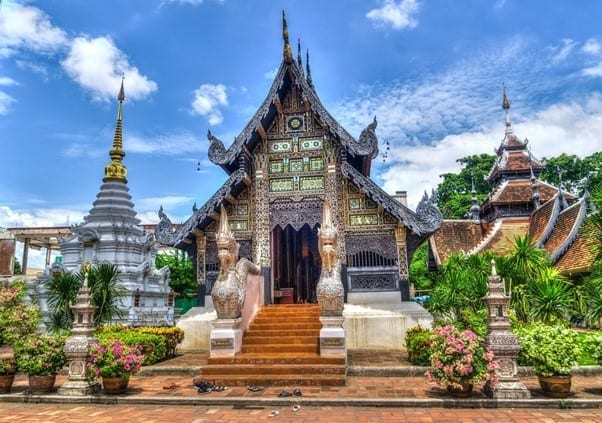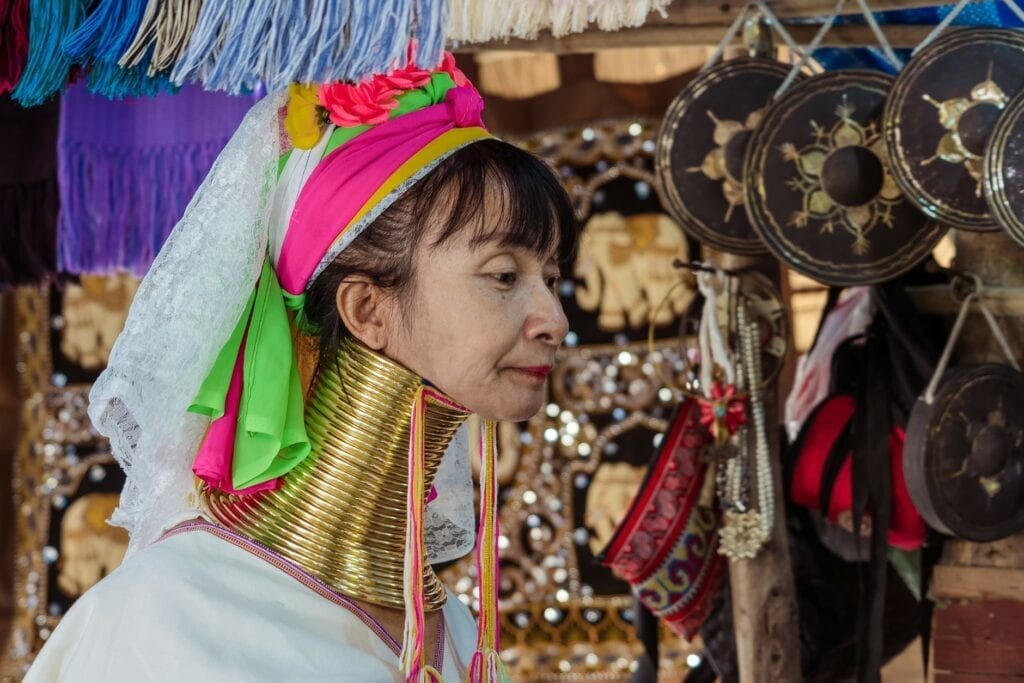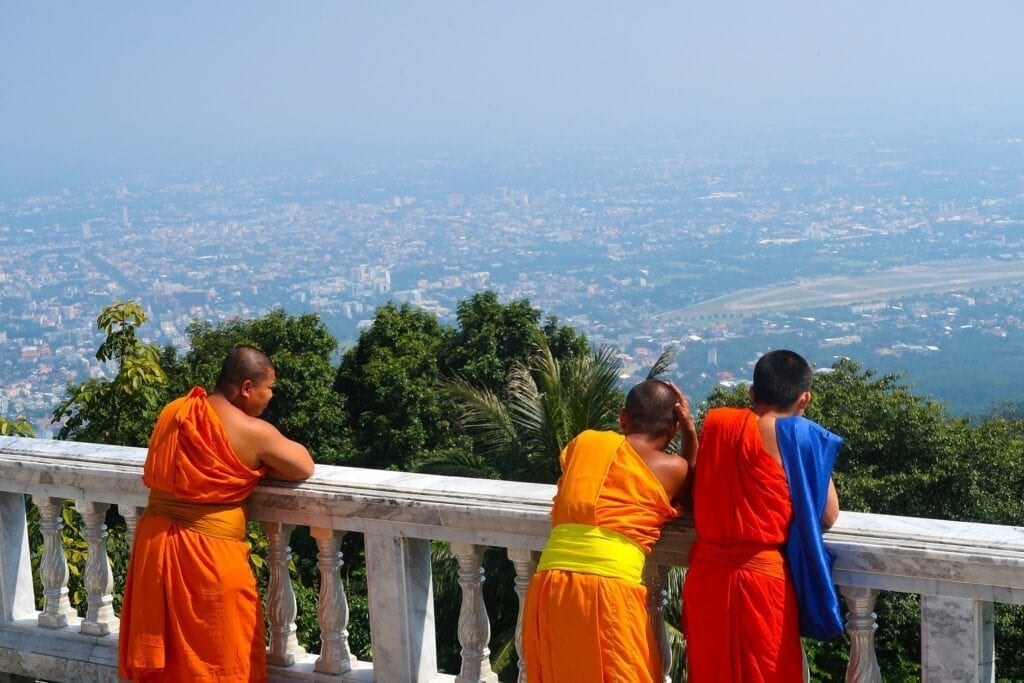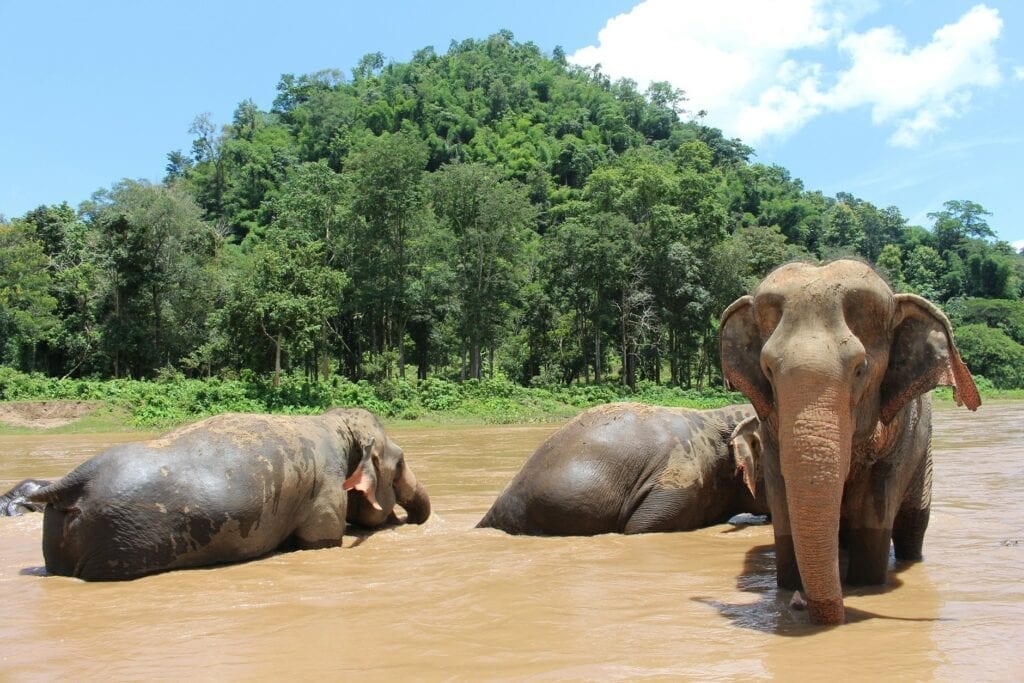|
|
Chiang Mai is one of the world’s most popular digital nomad hotspots. The city is in the heart of Northern Thailand – it is well known for its incredible jungles, elephants, great food, and an excellent digital nomad community.
In 2019 over 10 million people visited the city. Locals have equipped the city well for visitors, with excellent infrastructure, accommodation options, and high-speed internet.
There are so many reasons why Chiang Mai is a global digital nomad hotspot – including low cost of living, western conveniences, diverse coworking spots, excellent weather conditions. The city is in a prime Asian location and well-connected to other parts of Asia.
This article will give you an insight into why Chiang Mai is such a phenomenal digital nomad hotspot.

The cost of living in Chiang Mai
Thailand is a very affordable country to be a digital nomad. Various parts of the country are popular for digital nomads, such as Bangkok and the southern islands, all are very affordable – and the same goes for Chiang Mai.
It is possible to live off $1500 per month. That cost includes food, apartment, gym memberships, and other living costs.
Although the THB has gained strength in the last 20 years, it remains relatively weak compared to western currencies. So if you’re making money online – and earning it on a west currency – you’ll live very comfortably.
Let’s break down some of the highest costs you’ll acquire from living as a digital nomad in Chiang Mai.
Accommodation Expenses
Chiang Mai is a city of endless accommodation opportunities. The city is home to so many digital nomads because the accommodation is so supreme and effortless to use. Most digital nomads in Chiang Mai will rent an apartment – it is cheaper in the long run.
But you can easily just rent Airbnb at a reasonable price. The prices range from $20 per night – for a decent single room – to $300 per night for luxury. Most digital nomads will be happy for the excellent value a $50 AirBnB gets you in Chiang Mai. You’ll likely have a gym, pool, bathtub, and high-speed internet at that price.
Hotels vary in price a lot. You can find youth hostels for $10 per night, but you could visit luxury $200 per night hotels too. The average price of a hotel in Chiang Mai is $25 – extremely affordable.
But if you’re going to spend a long time in the city. You can rent suitable apartments at anything from $200 per month for a basic room, to $500 for a decent-sized apartment with a pool, gym, and other facilities.
Food expenses
The food in Chiang Mai is delicious and better still, entirely affordable. The city is home to an array of delicious street food that you can get a couple of dollars per meal (60 THB). Popular local dishes include pad thai, which you can sometimes get for $1 on the street.
Supermarket food is very affordable too. Many western digital nomads – who have kitchens – will cook their own food. But in reality, buying food from street vendors doesn’t work out much more expensive. That’s the beauty of Southeast Asia; everything works out relatively affordable.
You can buy western food, of course, they will cater to the millions of Europeans that visit every year. But you’ll pay much more. In fact, you might pay three times more than local cuisine. And when local food is so healthy, delicious, and nutritious – you might want to stick to that.
Drink expenses
You’ll be delighted to know that beers in Chiang Mai are very cheap. You shouldn’t pay more than $3 per beer, which equates to 100 THB.
However, Chiang Mai is not a party city. Therefore, you can find drinks at reasonable prices. In other parts of Thailand, alcohol prices are not far behind western prices.
But in Chiang Mai, alcohol is very affordable, and you shouldn’t have any issues at all purchasing alcohol.
Transport expenses
So this is where you might slip up a bit. Transport is very overpriced in Chiang Mai if you don’t look like a local, or speak Thai. The prices of taxis and tuk-tuks can be vastly overpriced – higher than London if you’re not careful.
If you want to avoid the constant hassle of being overcharged, you should either use the Grab app to get a fixed price. Or you should buy your own transportation, which will save you a lot of money and hassle. You just have to get used to the roads.

Benefits of being a digital nomad in Chiang Mai
Surrounded by nature
Chiang Mai is a world-famous city for elephants. They live around the city, and it’s effortless to go and see them. There are various elephant sanctuaries with owners that take care of the animals and put welfare before profits.
You can also do some incredible trekking around the local jungles. Many tourists will travel with groups and stay in the jungles for days. As a digital nomad, you can do this too.
Chiang Mai is an excellent mixture of waterfalls, jungle, and wildlife. It is a beautiful spot to live as a digital nomad.
Great weather
Being a digital nomad in Europe means you’ll have to handle the cold winters, but you won’t have to worry about that too much in Chiang Mai. There is a colder season during the early months of the year, where you may require a jacket during the early mornings. But in general, you’re not going to be cold that often.
The climate isn’t as tropical as Thailand around and below Bangkok. In those areas, you’ll sweat buckets. But in Chiang Mai, it is more of a dry heat, where you’ll barely sweat. It will get up to the late 30s throughout the year, but it’s a dry, comfortable heat unlike much of Southeast Asia.
Superb location
Although Chiang Mai looks isolated on a map, you can get anywhere in Southeast Asia with ease from Chiang Mai. The airport is modern, developed, and well connected to Thailand and Southeast Asia.
You can effortlessly fly to other parts of Asia such as Bali, Philippines, Vietnam, Malaysia, and many more. Furthermore, you can get to other popular parts of Northern Thailand such as Pai and Chiang Rai with ease.
Massive digital nomad community
Chiang Mai is one of the most prominent digital nomad communities globally. Digital nomads need to meet other people, and you’ll meet loads of like-minded nomads in Chiang Mai.
The city has so many excellent coworking spaces. And they offer so many events to network and meet other nomads in the community. It is probably one of the world’s best networking spots for a digital nomad.
The relaxed pace of life
The pace of life in Chiang Mai is very relaxed. It is a massive difference from Bangkok, where the streets buzz with exhaust noises, and the smell of petrol is everywhere. Chiang Mai is a relaxed vibe where the locals like to meditate and go to temples.
Living in Chiang Mai is considerably less stressful than living in a big Asian city, and a calmer pace of life than the west – it’s an escape from the rat race, some say.
Downsides to living in Chiang Mai as a Digital Nomad
Pollution at certain times of the year
Chiang Mai is not as polluted as big cities like Bangkok. But during the early months of the year, the local farmers do a lot of burning, which leads to crazy smog over Chiang Mai’s skies.
At times, it feels like you might be in Bangkok. This is a big downside for an otherwise clean city if you like clean air.
Constant overcharging
Living in Chiang Mai as a European will mean you have to get used to haggling and paying four times the local prices. That is prevalent across Southeast Asia, but it’s highly prevalent in Chiang Mai.
That is because there are far fewer taxis in the city than Bangkok or Pattaya. Therefore, taxi drivers will ramp up the prices considerably. And if you look like a tourist, they will ramp them up even more.
Things to note
Visa requirements
The visa situation in Thailand continues to confuse many digital nomads. However, it did use to be relatively effortless to get visas and do border runs. But the Thai authorities have clamped down hard on visa-runs, and are making it more complicated to be a digital nomad.
The Thai officials have spoken about introducing a digital nomad visa into Thailand, but nothing is fully introduced. The upside would be less stress with visas, but it would leave you with zero choices but pay your tax into Thailand, which would mean double taxation for some nomads.
In any case, we advise you to have travel insurance. You can check out SafetyWing, who offer travel and medical insurance for digital nomads.
Taxes
The Thai government recently introduced some controversial tax legislation that would target digital service providers. And this might hit the digital nomad scene hard, so what does it mean?
In June 2020, Thailand passed amendments to the Thai Revenue Code, which will impose a 7% VAT on foreign digital service providers and digital sales. The tax will directly hit drop shippers and digital marketers, two of the most significant income streams for many digital nomads.
But it’s not going to impact you unless you earn more than $58,000 per year. If you make more than that figure, you need to sign your tax form and get ready to pay tax.
The tax is effectively targeting digital nomads. Thai Authorities have realised people are making six figures a year from their laptop and have decided to tax them if they spend more than six months in the country.
It will drive some digital nomads away from places like Chiang Mai.

How to find accommodation
Finding accommodation in Chiang Mai doesn’t need to be complicated. If you’re going to stay here for most of the year – and you don’t see yourself travelling a lot, you should get an apartment in the city.
Thailand Property is one of the best sites. You can find apartments to suit every budget, from high-end luxury to budget apartments – this one has it all.
If you want a great local specialist, check out Perfect Homes, they are in Chiang Mai and offer a vast array of accommodation options.
Another excellent site to find a property in Chiang Mai is Faz Waz, this real estate company is based all over Thailand but has fantastic options in Chiang Mai.
Coworking Spaces
Perhaps the most important part of any digital nomads choice of location is the quality of the coworking spaces. And in terms of Chiang Mai, it will not let you down. The massive community of digital nomads means there are plenty. Let’s look at a few.
Punspace Tha Pae Gate
Punspace Tha Pae Gate is in the heart of the old city, and a popular coworking spot. It is new, comfortable, and has excellent facilities which include
- 24/7 access
- Weekly and yearly membership options
- Great location
- Good budget option
- Spacious and quiet
Punspace Niman
The first coworking space in the city was Punspace Niman. It is a favourite for many digital nomads and has an amazing community. Ever since its launch in 2013, the popularity of the facilities have remained top-class, they include
- More than one location in Chiang Mai
- 24/7 access
- High-speed internet
- Great community of nomads
- Private rooms
Mana Coworking
Mana Coworking is an excellent spot, with a small cosy digital nomad community. It has all the facilities you need, they include
- Food and drink
- Quiet atmosphere
- Comfortable furnishings
- Great location
- Meeting rooms available
C.A.M.P
CAMP is a vast coworking space in the heart of Chiang Mai. It has a massive digital nomad community with regular gatherings. And it’s free to enter; you only pay for the internet you use! The great facilities include
- 24/7 access
- Free entry
- Super-fast wifi
- Food and drinks
- Private rooms and conference rooms
Hub53 Coworking
Hub53 is one of the most popular coworking spots. It is familiar with all types of digital nomads and has excellent facilities, these include
- 24/7 access
- Silent rooms
- Private rooms
- Private fridges
- A Common living area

Chiang Mai remains one of the world’s great places for a digital nomad. There are very few downsides to living here, but there are so many upsides.
It is a great city with a substantial digital nomad community, and you’ll be comfortable here very quickly.
You should prepare for fantastic food, low prices, natural beauty, and a relaxed lifestyle that’s so different from the west.
You’ll soon see why many digital nomads call Chiang Mai their home.













